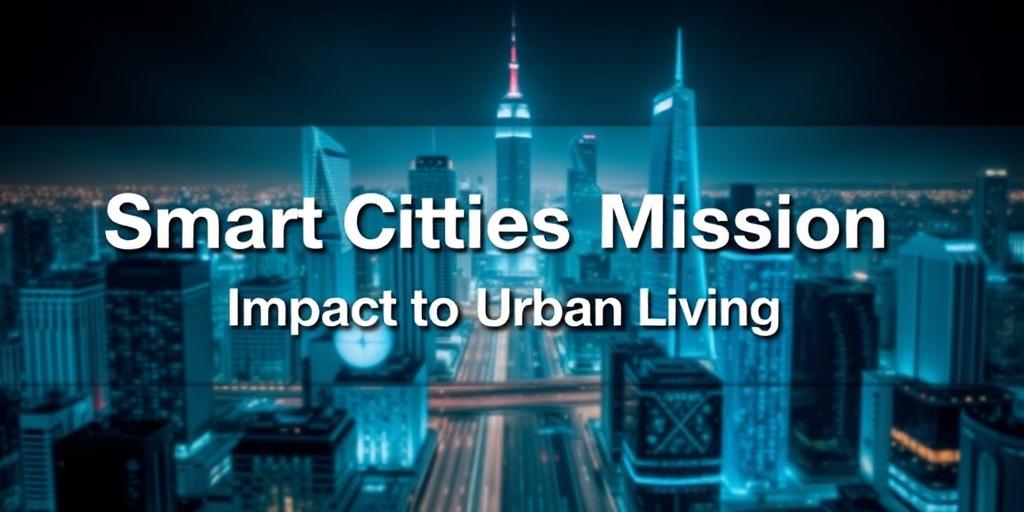Smart Cities Mission 2025: An Authoritative Assessment of Impact on Urban Living
The Smart Cities Mission (SCM), launched by the Government of India in 2015, represents a significant urban renewal and retrofitting program. With a target completion date of 2025, it is crucial to provide an authoritative assessment of its impact on urban living. This analysis delves into the mission's objectives, progress, challenges, and overall transformative potential.
Mission Objectives and Core Strategies
The SCM aims to drive economic growth and improve the quality of life for citizens by enabling local development and harnessing technology to create smart outcomes for citizens. Key objectives include:
- Promoting Sustainable and Inclusive Cities: Focus on providing core infrastructure and giving a decent quality of life to its citizens, a clean and sustainable environment and application of ‘Smart’ Solutions.
- Applying Smart Solutions: Using technology to improve urban services and infrastructure.
- Ensuring Citizen Participation: Encouraging active involvement of citizens in prioritizing and implementing projects.
The core strategies involve city-level planning, project implementation through Special Purpose Vehicles (SPVs), and convergence with other government programs.
Progress and Achievements
As the mission approaches its 2025 deadline, considerable progress has been made, though not uniformly across all selected cities. Key achievements include:
- Infrastructure Development: Significant investments in water supply, sanitation, waste management, and urban mobility projects.
- Digital Infrastructure: Deployment of integrated command and control centers (ICCCs) to enhance city management and responsiveness.
- Economic Impact: Stimulation of local economies through project implementation and job creation.
However, the pace of project completion varies, and some cities face challenges related to funding, land acquisition, and coordination among various stakeholders.
Challenges and Roadblocks
Several challenges impede the mission's progress:
- Financial Sustainability: Ensuring the long-term financial viability of SPVs and projects.
- Inter-Departmental Coordination: Streamlining coordination among various government departments and agencies.
- Data Privacy and Security: Addressing concerns related to data privacy and security in the context of smart city solutions.
- Citizen Engagement: Enhancing citizen participation beyond token consultations to ensure projects align with community needs.
Impact on Urban Living
The SCM has the potential to significantly transform urban living. The mission seeks to enhance:
- Quality of Life: Through improved infrastructure, services, and amenities.
- Economic Opportunities: By creating jobs, attracting investments, and promoting innovation.
- Environmental Sustainability: Via efficient resource management, pollution control, and green infrastructure.
However, the extent of this transformation depends on addressing the existing challenges and ensuring inclusive and equitable development.
Conclusion
The Smart Cities Mission 2025 represents a bold initiative to modernize urban India. While progress has been made, challenges remain. Achieving the mission's objectives requires concerted efforts from all stakeholders, a focus on financial sustainability, enhanced citizen engagement, and a commitment to inclusive and equitable development. As the mission approaches its completion date, a comprehensive and objective assessment is essential to inform future urban development strategies.









